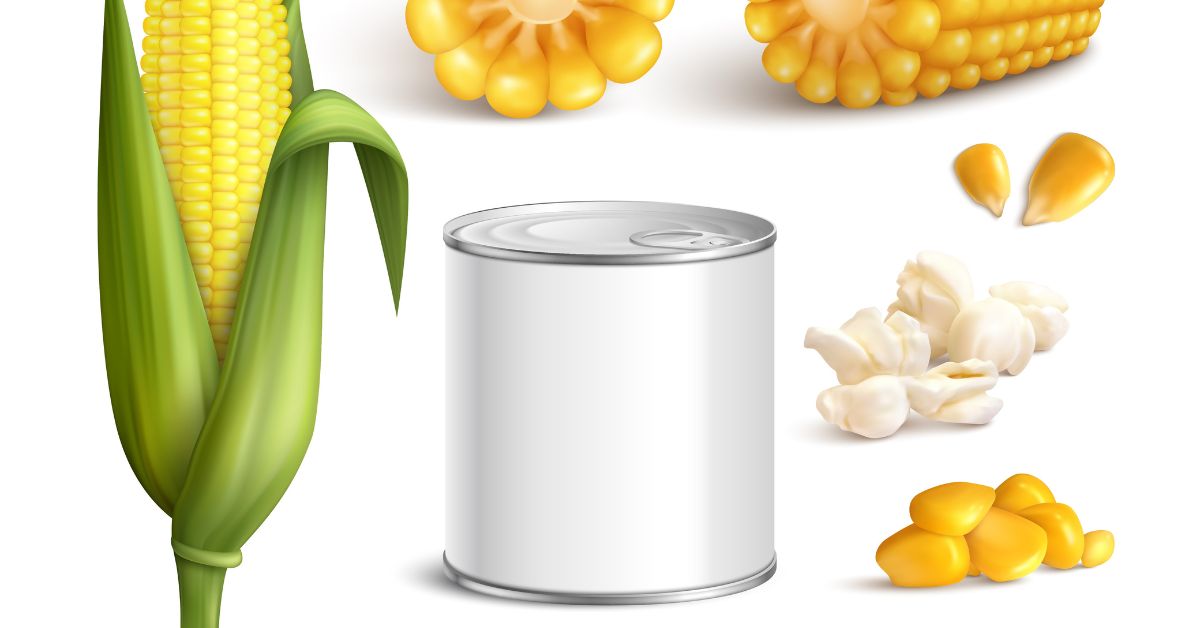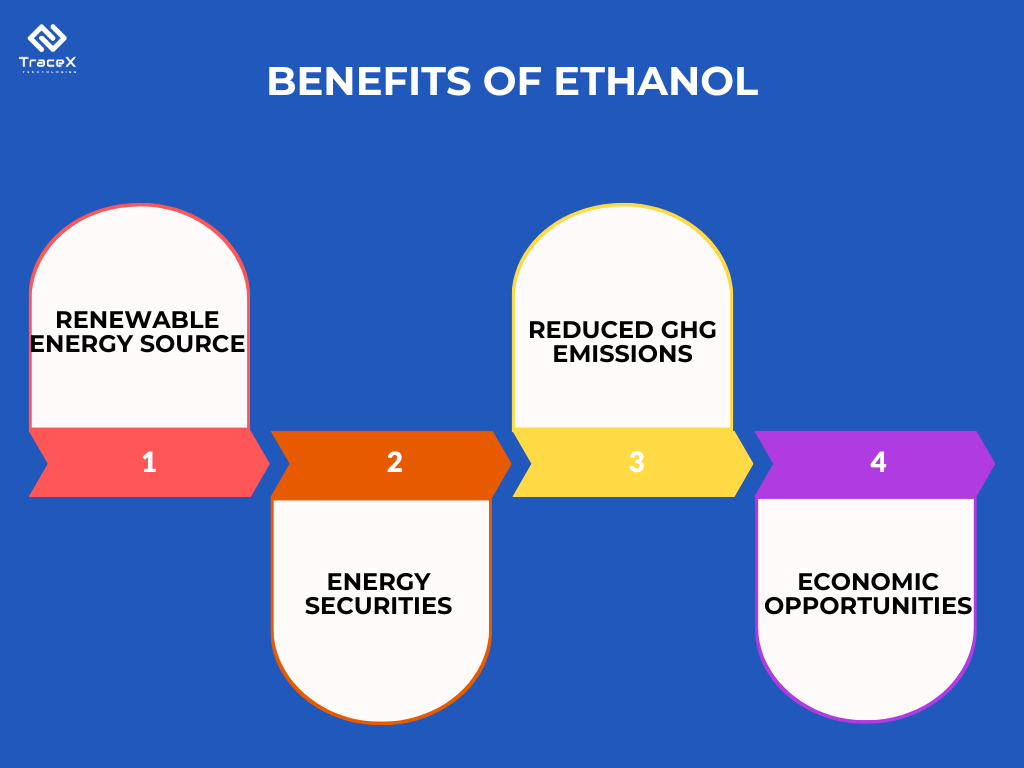Contact: +91 99725 24322 |
Menu
Menu
Quick summary: Maize-based ethanol presents a sustainable energy solution with lower emissions and job stability. Despite concerns about environment and food security, innovation and policy support can address challenges, ensuring a fair distribution of benefits for a greener future.

The world grapples with the twin challenges of dwindling fossil fuel reserves and climate change and the search for alternative energy sources intensifies. Ethanol production from maize has emerged as a prominent contender, offering a renewable and potentially cleaner burning fuel option. But is ethanol from maize truly a sustainable solution for our energy needs?
Sustainable energy sources are critical to lowering greenhouse gas emissions, combating climate change, and guaranteeing long-term energy security. Unlike fossil fuels, sustainable sources such as maize-based ethanol provide renewable alternatives that can be supplied organically. By utilising such sources, we may reduce our dependency on finite resources, mitigate environmental deterioration, and promote economic progress.
Ethanol production from maize includes converting starch in maize kernels into fermentable sugars, which are then fermented to make ethanol. This process typically consists of grinding maize kernels, liquefaction to break down starch, saccharification to convert starch into sugars, yeast fermentation to make ethanol, and distillation to purify the ethanol.
Producing ethanol from maize requires multiple procedures. First, maize kernels are ground to a fine powder. The maize’s starch is then liquefied and saccharified to produce fermentable sugars. The sugars are then fermented using yeast, yielding ethanol and carbon dioxide. Following fermentation, the mixture is distilled to extract ethanol from water and other byproducts. Finally, the ethanol is purified using dehydration procedures, resulting in high-purity ethanol suited for a variety of applications, including fuel blending.
Maize has various advantages in ethanol production.
Unveil the Secrets of Maize: Explore Traceability in the Maize Value Chain!
Discover how traceability solutions revolutionize maize production, ensuring transparency, quality, and sustainability from farm to table.
Reducing greenhouse gas emissions is a crucial element in the fight against climate change. We can drastically reduce the output of greenhouse gases like carbon dioxide by switching to renewable energy sources like ethanol made from maize. In contrast to fossil fuels, only carbon dioxide that has recently been absorbed by the developing maize plants during photosynthesis is released by maize ethanol. This complete carbon cycle supports international efforts to reduce climate change and its negative effects by reducing the overall carbon footprint linked to energy production and transportation.
Long-term sustainability and the preservation of ecological balance depend on the conservation of natural resources. By responsibly using a renewable resource, maize crops, maize ethanol manufacturing contributes to this goal. We lessen our dependency on scarce fossil fuel supplies and protect natural areas that might otherwise be harmed by extraction operations by effectively turning maize into ethanol. Moreover, sustainable management of maize farming can maintain biodiversity, water resources, and soil fertility. This strategy encourages the prudent use of natural resources, building ecosystem resilience and preserving the health of current and future generations.
In rural areas, the manufacture of ethanol from maize promotes economic growth and employment creation. The establishment of ethanol facilities and associated infrastructure, such as farms and distribution networks, creates jobs in a number of industries, including manufacturing, transportation, and agriculture. Furthermore, local economies benefit from the money made by the sale of ethanol, which boosts development, helps small companies, and raises living standards in rural areas.
By lowering dependency on imported fossil fuels and diversifying energy sources, using maize for ethanol production promotes energy independence. Ethanol generated domestically improves national energy security by reducing the risks brought on by geopolitical unrest and changes in the world oil markets. In addition, encouraging the use of renewable energy sources like maize ethanol boosts domestic energy resilience and ensures a more independent and sustainable energy supply in the future.

When thinking about producing ethanol from maize, food security issues must be taken into consideration. Opponents contend that switching maize from food to fuel could make food shortages worse, especially in areas where maize is a staple crop. But as ethanol production technologies have advanced, methods for using maize residues—like stalks and cobs—have been developed, which lessens the competition for food crops.
Ethanol production involves multiple stages and processes, making it challenging to map out and integrate all operations within an ERP system. ERP solutions often require customization to meet the specific needs of ethanol manufacturing, which can be time-consuming and costly. Integrating data from various sources, such as production equipment, laboratory instruments, and supply chain partners, can be complex and may require specialized interfaces. Ethanol production is subject to stringent regulations and compliance requirements, which must be accurately tracked and managed within the ERP system.
Technology solutions play a pivotal role in optimizing the maize to ethanol supply chain, streamlining processes, and enhancing efficiency at every stage. Advanced agricultural technologies enable precision farming techniques, allowing farmers to optimize crop yields and quality while minimizing resource inputs. IoT devices and sensors provide real-time monitoring of crop growth, soil conditions, and weather patterns, enabling proactive decision-making and mitigating risks. Additionally, blockchain-based traceability solutions ensure transparency and accountability throughout the supply chain, from maize cultivation to ethanol production and distribution. Automation and data analytics tools further improve operational efficiency, enabling timely procurement, production scheduling, and inventory management. By leveraging technology solutions, stakeholders in the maize to ethanol supply chain can reduce costs, improve productivity, and contribute to a more sustainable and resilient ethanol production ecosystem.
Trace Gro and Trace Pro play instrumental roles in streamlining both pre-harvest and post-harvest processes. Before harvesting, Trace Gro facilitates precision farming practices by providing farmers with real-time insights into crop health, soil conditions, and weather forecasts. This enables farmers to make data-driven decisions regarding irrigation, fertilization, and pest management, ultimately optimizing crop yields and quality. Post-harvest, Trace Pro ensures traceability and transparency in the supply chain by digitally recording the journey of agricultural products from farm to fork. By leveraging blockchain technology, Trace Pro enables seamless tracking of product origins, handling, and distribution, thereby enhancing food safety, quality assurance, and regulatory compliance. Together, Trace Gro and Trace Pro empower agricultural stakeholders with the tools and insights needed to drive efficiency, sustainability, and profitability across the entire agricultural value chain.
The growing demand for renewable fuels and technological improvements present substantial opportunities for innovation and expansion in the manufacture of ethanol derived from maize. There are ways to increase production while reducing the negative effects on the environment, such as through the use of enzyme technologies for more effective starch conversion, enhanced fermentation processes, and the generation of ethanol from maize leftovers.
Government incentives and policies are major factors influencing how much ethanol produced from maize is produced. Mandates requiring the use of renewable fuels, tax breaks, and subsidies can motivate the development of infrastructure for ethanol production and promote the adoption of sustainable practices. Furthermore, encouraging legislative frameworks that promote innovation in the ethanol sector, like carbon pricing schemes and renewable energy regulations, can offer market stability.
In conclusion, the manufacture of ethanol from maize shows potential as a sustainable energy source, providing advantages including lower greenhouse gas emissions, increased job stability, and more. While worries about the effects on the environment and food security continue, technological improvements and sustainable farming methods offer potential to successfully address these issues. The viability and scalability of producing ethanol from maize are demonstrated by successful cases in nations like the US and Brazil. But in order to fully utilise maize-based ethanol, encouraging government policies and incentives are needed to promote innovation, increase output, and guarantee a fair distribution of benefits. A shift to a more robust and sustainable energy future can be greatly aided by maize-based ethanol with sustained investment and cooperation.
